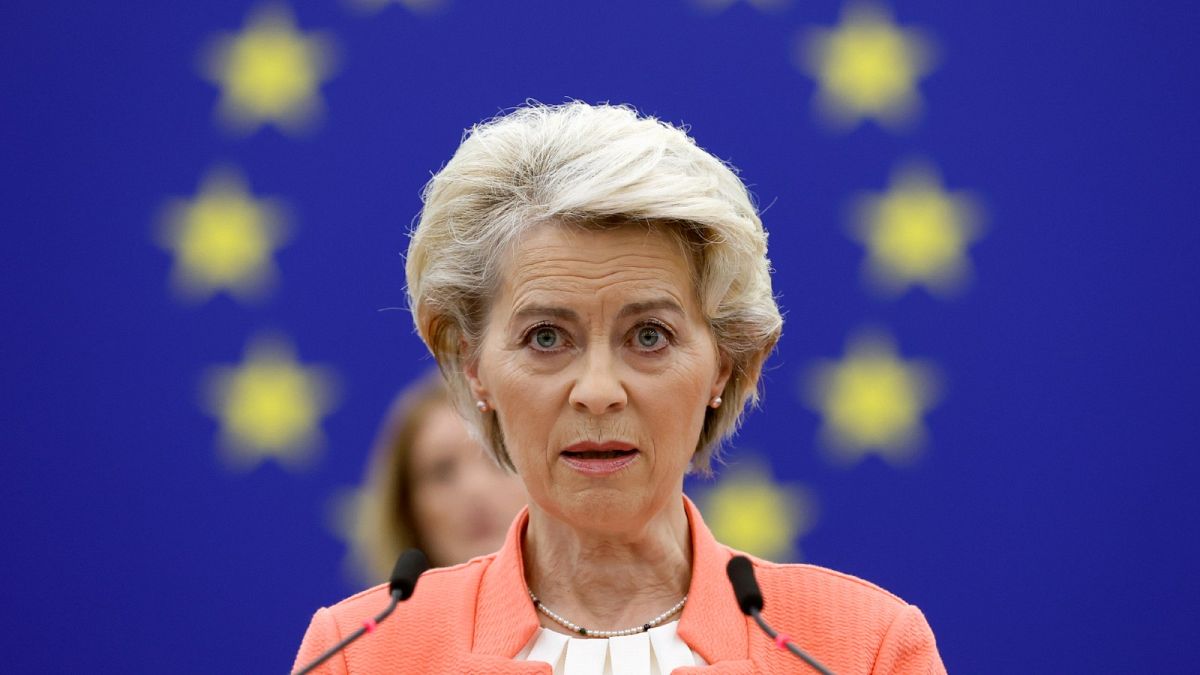The European Commission chief also called on the 27 countries to "make best use of our satellite surveillance capacity" to identify and deter threats.
The European Union's energy infrastructure has become a target for the first time in recent history, Ursula von der Leyen said on Wednesday, adding that the bloc must carry out stress tests of critical infrastructure and make better use of its surveillance satellites to prevent acts of sabotage.
"The acts of sabotage against Nordstream pipelines have shown how vulnerable our energy infrastructure is. For the first time in recent history, it has become a target," the Commission chief told the plenary of the EU parliament in Strasbourg.
Four leaks were last week detected on the two Nord Stream pipelines that connect Russia to Germany through the Baltic Sea. An investigation is now underwater but Western countries say they are most likely the result of deliberate action with Sweden and Denmark writing in a letter to the United Nations Security Council that "at least two detonations" were recorded by seismological institutes.
Von der Leyen described pipelines and underwater cables as "the lifelines of data and energy" for European citizens and businesses and that it is therefore "in the interest of all Europeans to better protect this critical infrastructure."
The bloc is currently in the process of updating its critical infrastructure directive that first came into force in 2008 to have it cover 11 risk areas including natural hazards, terrorist attacks, insider threats, and sabotage, but also public health emergencies like the recent COVID-19 pandemic.
The new law, which still needs to be approved by MEPs, is expected to come into force in 2024 but von der Leyen argued on Wednesday that "we can and should already now be working on this basis."
She also said that the bloc needs to "stress test" its infrastructure, first those related to energy supply but also "other high-risk sectors" including offshore digital and electricity infrastructure.
"We don’t have to wait till something happens but we need to make sure that we’re prepared and therefore we need those stress tests.
"We need to identify whether we have weak points and where these weak points are and, of course, we have to prepare our reaction to sudden disruptions. What are we doing then? Are all the information chains in place? Is everybody informed? Does this emergency scenario really work then in our Single Market?," she told MEPs.
Finally, she called for the bloc to "make best use of our satellite surveillance capacity".
"We have these satellites in place, we have the capacity to do the surveillance to detect potential threats so this is also a matter of prevention and awareness," she said.
During her address to parliament, the European Commission president also expanded on her proposals to impose a cap on the price of gas used for electricity generation in order to reduce energy bills for citizens. She said such a measure, which needs to be agreed upon by member states, "would also be a first step on the way to a structural reform, an overall reform of our electricity market."
She also reiterated her stance that the EU roll out a cap on the price of Russian gas imported by pipelines.
She closed her speech by addressing the situation in Ukraine, praising the recent "impressive successes" of the Ukrainian army.
"Now is the time to keep track, to help the Ukrainians to face down the invader. A strong and steadfast Europe that will be the only way to stop Putin. This is the moment to stay the course and to signal again we stay by your side as long as it takes," she said.
